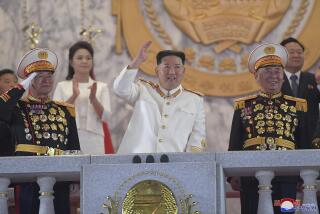Seoul Deals, Pyongyang Reels : Stunning diplomatic initiative by South Korea
The establishing of full diplomatic relations between China and South Korea may lack the dramatic historical significance of the reconciliation reached by the United States and China in the 1970s, but its economic and political importance to the two countries and to the future of northeast Asia looms unmistakably large.
Forty-two years ago China intervened in the Korean War to rescue its communist ally in Pyongyang from military defeat at the hands of American-led U.N. forces and a resurgent South Korean army. That intervention saved the brutal regime of North Korea’s dictator Kim Il Sung, who remains in power to this day, object of the world’s most durable and ridiculous cult of personality. It also worked to prolong the Korean War by more than 30 months, cost tens of thousands of additional American and South Korean lives, and brought China casualties numbering in the hundreds of thousands. It so poisoned the political atmosphere that it took more than two decades before Beijing and Washington could begin moving toward normal relations.
The new China-South Korea ties mark a further phase in the death of Cold War ideology. China remains, if increasingly nominally, a communist country, its economy a blend of exuberant capitalism and inefficient state controls, its politics still repressive and authoritarian. But China has opted for pragmatism in its international relations, its major condition for diplomatic ties with old antagonists being only that they sever such ties with its rival Taiwan. Seoul, to the pain and disgust of its longtime allies in Taipei, has now done that.
The economic rewards of the new relationship could be large for both nations. Trade, for years indirect but now open and expanding, could reach $10 billion this year. South Korean businesses eye China as a market and an area for investment. China, seeking models for its own development, looks to booming South Korea.
Beijing retains its ties with North Korea, though it barely conceals its weariness with that hermitic regime’s paralyzing ideology. Some South Korean analysts worry that the north, isolated, economically stagnating, but still pushing to develop its own nuclear weapons, might now become more unpredictable and dangerous. There is that chance. There is at least an equal possibility that the largely friendless north will also belatedly discover the virtues of pragmatism in its international relations, providing a new opportunity to reduce tensions on the divided Korean peninsula.
The message from Beijing to Pyongyang in any event is clear: So far as China is concerned, the Cold War in Korea is over.
More to Read
Sign up for Essential California
The most important California stories and recommendations in your inbox every morning.
You may occasionally receive promotional content from the Los Angeles Times.










